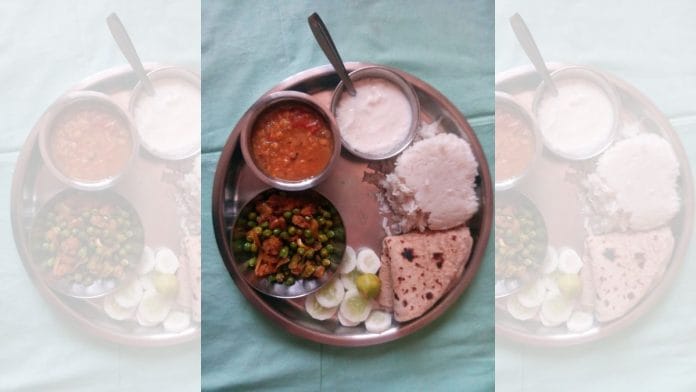New Delhi: With heart disease continuing to surge among young Indians, leading cardiologists from AIIMS have issued urgent lifestyle recommendations—stressing regular physical activity, a healthy diet, and routine health checks—as India increasingly becomes the global epicentre of coronary heart disease.
Regular exercise, a balanced diet, and routine check-ups for cholesterol, blood sugar, and blood pressure are essential to maintaining a healthy heart. In contrast, tobacco use (both smoking and non-smoking forms), alcohol consumption, and prolonged sedentary behaviour significantly increase the risk of cardiovascular disease.
At a panel discussion titled “Ten Commandments for Nurturing the Heart” held at the India International Centre (IIC), Dr Ambuj Roy and Dr Nitish Naik, both professors of cardiology at AIIMS, outlined practical guidelines for preventing heart attacks and ensuring cardiovascular health.
According to the experts, the increasing prevalence of sedentary lifestyles is a key factor contributing to heart-related ailments among young Indians. “Sitting is the new smoking, everyone must move or walk after 30 minutes of continuous sitting,” said Dr Ambuj Roy.
Citing international studies published in BMC Public Health (2015, Norway) and CMAJ Open (2014, Canada), Dr Roy emphasised that South Asians/Indians are 50 to 100 percent more likely to develop heart disease compared to the native populations of those countries.
Given India’s status as the coronary heart disease capital of the world, the panelists explored in depth various strategies to protect the heart, suggested healthier food habits, and debunked persistent myths.
How to nurture a healthy heart
Describing physical activity as a “miracle drug”, the panelists stated that regular exercise can reduce the risk of heart attacks by up to 40 percent. Their recommendation was 150 minutes of moderate-intensity or 75 minutes of vigorous physical activity per week.
They strongly advised complete avoidance of all forms of tobacco. Smoking increases the risk of cardiovascular disease threefold, while smokeless forms such as gutka and pan masala double the risk.
Regarding diet, the doctors recommended a daily intake of fresh fruits and vegetables—ideally 400 grams per day. Omnivores, they noted, can include healthier meats like fish and poultry in their diets.
The panelists also raised concerns over rising obesity levels in India. They recommended maintaining a body mass index (BMI) of less than 25 kilograms per square metre and a waist-to-hip ratio of under 0.5 to reduce the likelihood of heart-related conditions.
They further advised individuals to actively monitor their own heart health by ensuring blood pressure levels remain below 140/90 mmHg, blood sugar levels between 6 and 7 percent, and cholesterol under 200 milligrams per decilitre.
For patients already diagnosed with heart disease or who have undergone heart procedures, doctors advised lifelong use of aspirin. Those with comorbidities such as high cholesterol or diabetes are at greater risk and should take statins regularly, under medical supervision.
Return to traditional eating habits
Discussing dietary habits and cooking methods, panelist Dr Suparna Ghosh Jerath, head of nutrition at the George Institute of Global Health, encouraged a return to ancestral ways of food preparation. She said, “The growing demand for convenience food is worrisome as it is highly processed, we must make our kitchen important again.”
She promoted the inclusion of khada masalas, spices, condiments, and herbs such as mint, tulsi, garlic, and ginger in everyday meals. A traditional Indian thali, she emphasised, should be ‘Satrangi’—a colourful blend of curries, vegetables, dal, curd, and salads.
She also stressed the importance of whole grains such as millets, ragi, and bajra. She added, “Indian diets are anti-inflammatory, provided how we consume them. It is the method of preparation and medium of cooking that can make an impact.” She noted that overcooking food diminishes its nutritional value, a common issue today.
Debunking common myths
In response to audience questions, the panelists addressed and dismissed several misconceptions about dietary choices and weight-loss supplements.
Citing United Nations-backed studies, they unanimously asserted that “no alcohol” is better than “moderate alcohol.” The widespread belief that moderate consumption of red wine benefits the heart was labelled misleading.
Dr Suparna also criticised the use of protein shakes for muscle building, classifying them as ultra-processed foods with potential adverse effects, including the risk of kidney failure.
Speaking about popular weight-loss medications like Ozempic and Mounjaro, panelist Dr Yashdeep Gupta, additional Professor of endocrinology at AIIMS, said: “These drugs have shown positive change among obese people, but their total side-effects are still to be ascertained. Due to lack of adequate long-term safety data, no significant conclusions can be made on efficacy and safety of weight loss drugs.”
(Edited by Radifah Kabir)






